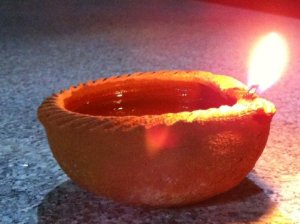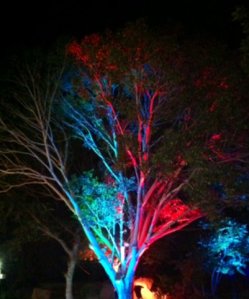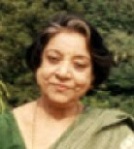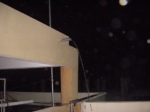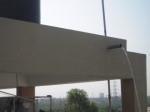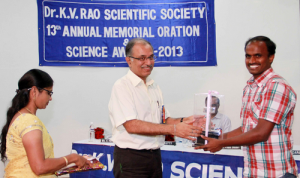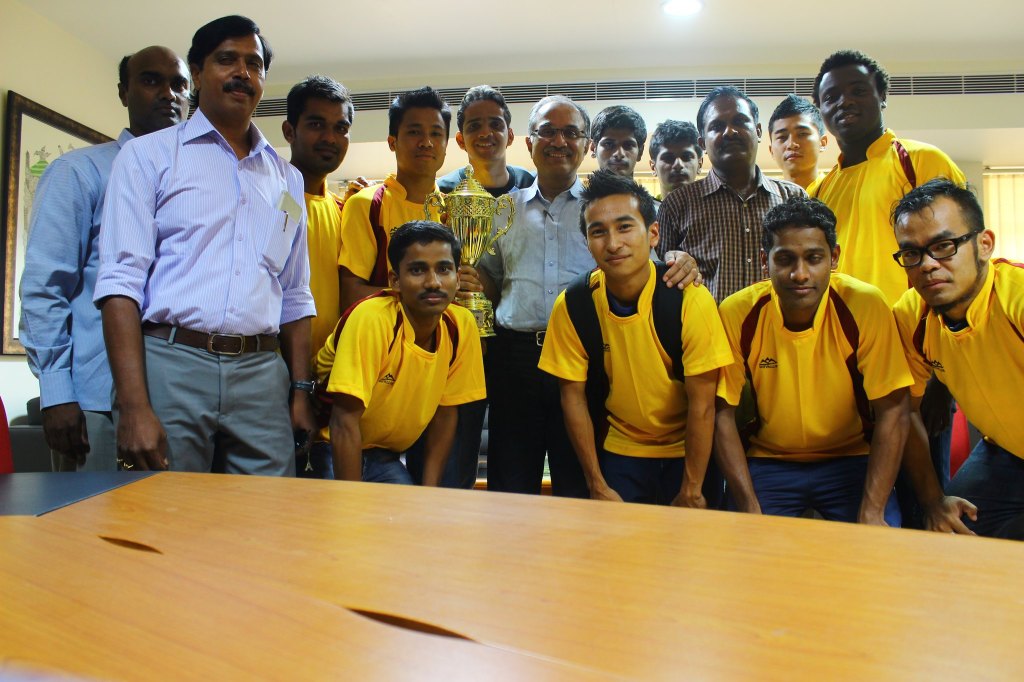Members of the UoH family,
This is the 65th Republic Day that we celebrate in our country. Every year it provides us at the University an opportunity to take stock of the year that has passed and to make resolutions for the year ahead. One of the most important events since the last Republic Day has been the re-accreditation of our University by the National Assessment and Accreditation Council (NAAC) during January 8-11 of this month. This visit by a group composed of our peers gave us a chance not only to look at our achievements in the past five years but also have a chance to clean our campus and put our best foot forward. I would like to take this opportunity to offer my hearty congratulations to the entire University family that came together as one for this accreditation; I would also like to thank the NAAC Chair at the University, Prof. Sachi Mohanty, and his team for guiding us through this process and in an efficient and sensitive manner.
In his speech yesterday, the Visitor to the University, President Pranab Mukherjee reminded us that India is not just a geography: it is also a history of ideas, philosophy, intellect, industrial genius, craft, innovation, and experience. And later on, he added that Education has been an inseparable part of the Indian experience. I am not talking only of the ancient institutions of excellence like Takshashila or Nalanda, but of an age as recent as the 17th and 18th centuries. Today, our higher educational infrastructure consists of over 650 universities and 33,000 colleges. The quality of education has to be the focus of our attention now. We can be world leaders in education, if only we discover the will and leadership to take us to that pinnacle. Education is no longer just the privilege of the elite, but a universal right. It is the seed of a nation’s destiny. We must usher in an education revolution that becomes a launching pad for the national resurgence.
Keeping this in mind, I would like to reassert that our commitment to enhancing the quality of our education is constant and enduring. The University has had a number of very distinguished visitors to our campus during the past year: Nobel Laureates Amartya Sen and Venki Ramakrishnan, and, among others, A. Paulraj, Sir Tom Blundell, Sir Michael Berry, Aruna Roy, André Beteille, Utsa Patnaik, Richard Gombrich, Rajasekhar Vundru, M. S. Valiathan, Nedunuri Krishna Murthy, Shereen Ratnagar, K. Satchidanandan, Irfan Habib, Mahesh Dattani, Rajeev Bhargava, and most recently, S. V. Raghavan. These distinguished visitors give us, through their lectures and interactions, opportunities to hear the many voices of a democracy, the many voices of scholarship, the many opinions that comprise the body politic and the body intellectual.
Our faculty and students have done us proud: Professor P. Appa Rao was awarded the Rangaswami Prize in Plant Sciences, Dr. Vaitheeswaran the B. M. Birla award in Physics, Dr. S. Venugopala Rao the NASI-SCOPUS award in Physics, Professor S. Kumaresan the Mathematics Teacher of the year award from INSA, Dr. V. Vamsicharan the Amartya Sen Award of the ICSSR in Economics, and the Child and Adolescent Mental Health award for Dr. Thomas Kishore. The University has instituted the Chancellor’s awards to recognize young faculty across the disciplines, and this year we will institute a set of staff awards to recognize exceptional service to the University by our non-teaching employees. There have been a host of other recognitions that our faculty have received in addition to their numerous publications and books.
Several of our students have been recognized for their research and presentations at conferences, both national and international, and P. Shankar, S. Basak and Hanumantha Rao got awards from the K.V. Rao Scientific Society. I would like to commend the Physical Education unit for coaching our students who won the Andhra Pradesh Open Football Tournament, and would also like to congratulate our runners, Mallesam and Vinod for bagging the 1st and 2ndplaces at the Airtel Half-Marathon.
Departments of the University have also been recognized for excellence. The Study in India Programme at the University has been given the distinguished Andrew Heiskell award for innovation in international education. The School of Management Studies has been chosen for the B-School Leadership Award and declared the outstanding B-School in the Southern Region.
In the past year we have translated our commitment to environment into two very useful actions: the first, which many of you would have noticed as you enter the campus at the main gate, is the installation of a small weather station that informs us constantly of the air quality in addition to the temperature, pressure and wind. The station measures the suspended particle matter, gases such Ammonia. Nitrous Oxide, Carbon Monoxide, Ozone. It also measures the rainfall, wind speed, wind direction, solar radiation, and vertical wind speed to assess the mixing height of the pollutants. This will help us to monitor atmospheric pollution on the campus in a quantitative manner. Second, the Library has been made fully dependent on solar energy, a move that has been widely applauded by universities throughout the country. To a smaller extent, many solar stand-alone streetlights have been installed to improve the security on our campus. In the coming year, we are taking up a range of other activities designed to further preserve our environment, dredging the lakes, digging more rain harvesting pits, planting more trees… And that starts from today, when we are reclaiming the old nursery and start our coconut tree plantation along the lakes of the University.
But more, we need to guard against the pollution of corruption in our lives, both inside the University and outside it. Corruption is a cancer that erodes democracy, and weakens the foundations of our state, another observation in yesterday’s speech by the President.
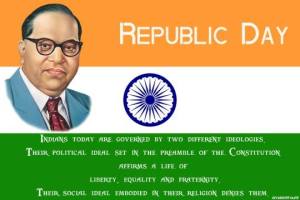 The University of Hyderabad is a University of Excellence in the Central University system and the prestige of the institution is of utmost importance. Our prestige comes from the character of the campus, the research atmosphere, our concerns for the environment and our contribution to the process of nation building. President Pranab Mukherjee put it eloquently: On this day, sixty four years ago, in a remarkable display of idealism and courage, we the people of India gave to ourselves a sovereign democratic republic to secure all its citizens justice, liberty and equality. In this process, we should recall Ambedkar, the father of the Constitution, who nevertheless remarked that “Indians today are governed by two different ideologies. Their political ideal set in the preamble of the Constitution affirms a life of liberty, equality and fraternity. Their social ideal embodied in their religion denies them.”
The University of Hyderabad is a University of Excellence in the Central University system and the prestige of the institution is of utmost importance. Our prestige comes from the character of the campus, the research atmosphere, our concerns for the environment and our contribution to the process of nation building. President Pranab Mukherjee put it eloquently: On this day, sixty four years ago, in a remarkable display of idealism and courage, we the people of India gave to ourselves a sovereign democratic republic to secure all its citizens justice, liberty and equality. In this process, we should recall Ambedkar, the father of the Constitution, who nevertheless remarked that “Indians today are governed by two different ideologies. Their political ideal set in the preamble of the Constitution affirms a life of liberty, equality and fraternity. Their social ideal embodied in their religion denies them.”
Beyond religion, today there are many sources of denial of liberty, equality and fraternity. The Republic belongs to us all, but yet we have many groups who need inclusion. Across the country, people realize that many unheard and sometimes unseen sections of our society have to be included in the constitutional protection of the rights that are guaranteed to every citizen of the country. Thus the most important freedom that we need to remember on this day is the freedom from inequality. We have to guard ourselves against discrimination due to gender, sexual orientation, racial differences, regional and religious identities, physically differential abilities, in addition to class and caste. As people, we need vigilance against the threats of fundamentalism, of censorship, and in this election year, against all divisive politics.
The Constitution is the central instrument that will guarantee us our rights and freedoms. Long live our Republic! Jai Hind!






